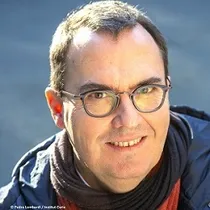- Accueil >
- Publications >
- Formation of the eIF4F Translation–Initiation Complex Determines Sensitivity to Anticancer Drugs Targeting the EGFR and HER2 Receptors
Formation of the eIF4F Translation–Initiation Complex Determines Sensitivity to Anticancer Drugs Targeting the EGFR and HER2 Receptors
Auteurs
Pierre Zindy, Yann Bergé, Ben Allal, Thomas Filleron, Sandra Pierredon, Anne Cammas, Samantha Beck, Loubna Mhamdi, Li Fan, Gilles Favre, Jean-Pierre Delord, Henri Roché, Florence Dalenc, Magali Lacroix-Triki, Stéphan Vagner
Résumé
Abstract
Elucidating how cancer cells respond to antagonists of HER receptor family members is critical to understanding mechanisms of therapeutic resistance that arise in patients. In large part, resistance to such agents appears to arise from deregulation of the phosphatidylinositol-3-kinase (PI3K)/Akt/mTOR pathway. mTOR-dependent phosphorylation of the translation repressor 4E-BP1 leads to its dissociation from eIF4E, thereby causing an increase in the formation of the eIF4F complex, which also comprises eIF4G and eIF4A. In this study, we show that trastuzumab, cetuximab, and erlotinib all decrease the formation of the eIF4F complex in breast, colon, and head and neck cancer cells, respectively. Ectopic expression of eIF4E restores the trastuzumab-dependent defect in eIF4F formation, renders cells resistant to the trastuzumab-mediated decrease in cell proliferation, and rescues breast cancer xenografts from inhibition by trastuzumab. In breast tumor specimens, the level of eIF4E expression is associated with the therapeutic response to a trastuzumab-based regimen. Together, our findings suggest that formation of the eIF4F complex may be a critical determinant of the response to anticancer drugs that target HER2 and epidermal growth factor receptor. Cancer Res; 71(12); 4068–73. ©2011 AACR.
Membres


